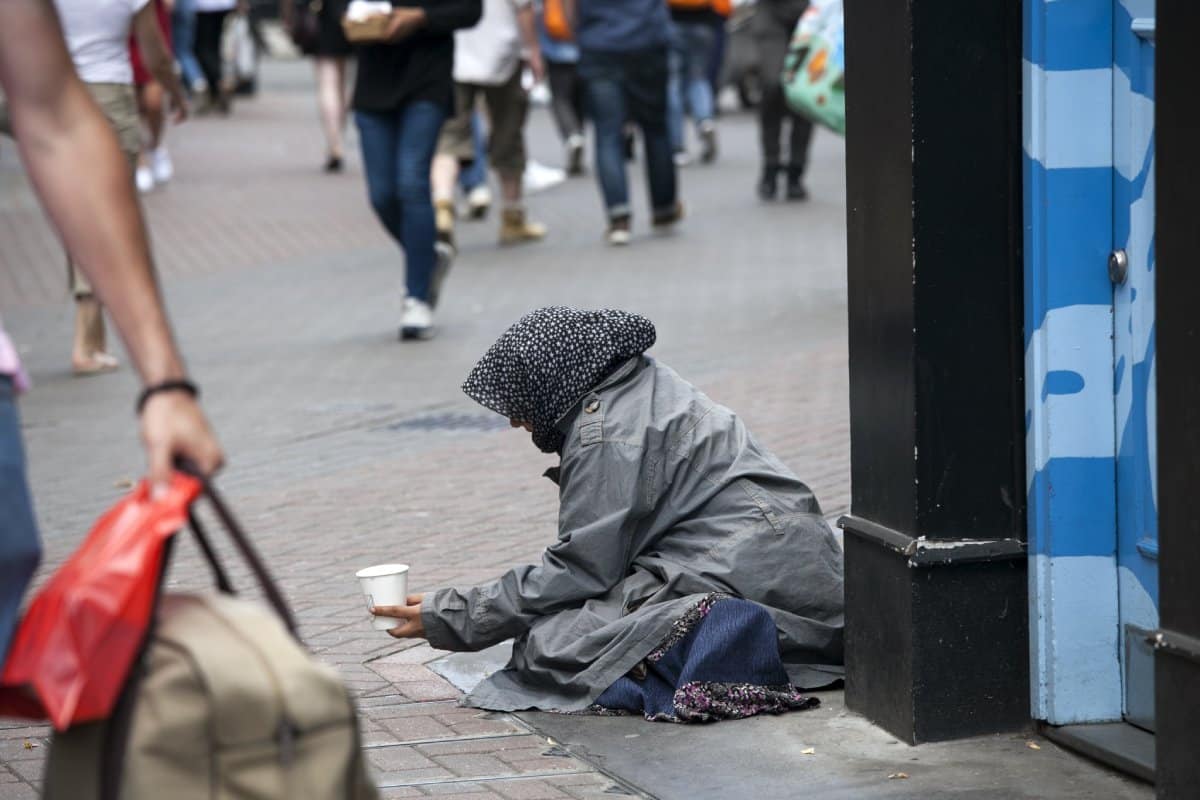As the UK’s poverty crisis deepens, escaping hardship is more challenging than ever, as political inertia prolongs the struggle, warns a new report from the Joseph Rowntree Foundation. Here’s the whole story.
The Poverty Trap
There was another deeply depressing disclosure from the UK this week, as the Joseph Rowntree Foundation (JRF) has sounded the alarm on the escalating hardship millions of people face in the country.
The charity’s UK poverty report for 2024 contains some decidedly bleak revelations and an incredibly harsh reality: escaping poverty has become more challenging over the past twenty years, with progress stagnating under the Conservative governments the country has had since 2010.
The report from the JRF stated, “Over the last two decades, we have seen poverty deepen, with more and more families falling further and further below the poverty line.”
The JRF report examines the history of poverty in the UK, with the prevalence of modern poverty rates tracing their roots back to the late 1970s. Under the government of the Iron Lady, Margaret Thatcher, poverty rates soared in the 1980s, reaching an astonishing peak of a quarter of the population by the mid-1990s.
Despite a brief respite during the first half of Tony Blair’s administration, poverty started its astronomical ascent post-2005. According to the JRF, it’s “little wonder that the visceral signs of hardship and destitution are all around us – from rocketing use of food banks to growing numbers of homeless families.”
The Poor Get Poorer
The JRF’s stark analysis exposes an ever-widening gap in income disparities, particularly for the most impoverished households. For those unfortunate enough to be classified as living in intense poverty – defined as having an income less than 40% of the median after housing costs – the average income was a staggering 59% below the poverty line.
Shockingly, this represents a two-thirds increase over the past 25 years. To put this into perspective, for a couple with two children under 14, the poverty line is £21,900, while falling below £14,600 signifies very deep poverty.
The report highlights the horrifying reality faced by the poorest individuals in society, stating that 6 million would need to more than double their income to escape hardship.
These daunting figures underscore the magnitude of the problem, with the average person in poverty experiencing an income 29% below the poverty line, a notable increase from the 23% gap observed in the mid-1990s. According to Paul Kissack, the chief executive of the JRF, “It is a story of both moral and fiscal irresponsibility – an affront to the dignity of those living in hardship.”
One in Five
Amidst the ongoing cost of living crisis, the JRF report points out that poverty has surged in recent years. Incredibly, considering the UK is the sixth-largest economy in the world, in 2021-22, more than one in five people (22%) living in the UK found themselves in poverty.
The cost of everyday essentials, coupled with skyrocketing energy bills and a government that seems loath to do anything to help consumers, has exacerbated an already serious situation. The figures are deeply disheartening, with the report estimating that the cost of living crisis has affected a staggering 14.4 million individuals, including 4.2 million children and 2.1 million pensioners.
In a typically tepid response to the report from a government widely seen as being on its knees, a spokesperson emphasised their commitment to supporting families with the cost of living.
They asserted that absolute poverty has decreased since 2010, although the JRF employs a more stringent measure – living in a household with income below 60% of the median in 2010-11, adjusted for inflation. The spokesperson highlighted initiatives to break down barriers to work and support low-income earners, all while reducing taxes and curbing inflation.
The fact that these efforts, according to the report, appear not to have worked was apparently lost on them.
Something Must Be Done
The JRF report concludes on a hopeful note, launching a compelling call to action and urging political leaders to articulate their plans to address the scourge of poverty before the upcoming general election.
With 20 long years having elapsed since the last sustained fall in poverty rates, the charity emphasises the critical need for whichever government is elected to implement comprehensive and practical strategies to remove the stain of poverty from one of the wealthiest countries in the world.
Paul Kissak, the chief executive of the JRF, stated, “Governments are not powerless to act, as we have seen throughout our history.”
In the face of deepening hardship and stagnant progress, the battle against poverty in the UK stands at a critical juncture. The revelations in the JRF report demand immediate attention and concerted efforts from political leaders to ease the suffering of those afflicted by this ancient but persistent problem.
Escaping poverty should not be an insurmountable challenge, and society’s responsibility to uplift those with the least remains an ideal that, hopefully, transcends political ideologies. As the nation rapidly approaches a general election, addressing the root causes of poverty becomes not just a policy objective but a societal imperative that defines the future well-being of millions.
More Articles Like This…
Broken Britain: 12 Reasons Behind the UK’s Decline
Say the Unsayable: 10 Occasions When Farage Spoke His Mind About Britain
The post The Poverty Trap Is Deeper Than Ever Before, According to Study first appeared on Edge Media.
Featured Image Credit: Shutterstock / Elena Rostunova.
Grant Gallacher is a seasoned writer with expertise in politics and impactful daily news. His work, deeply rooted in addressing issues that resonate with a wide audience, showcases an unwavering commitment to bringing forth the stories that matter. He is also known for satirical writing and stand up comedy.

